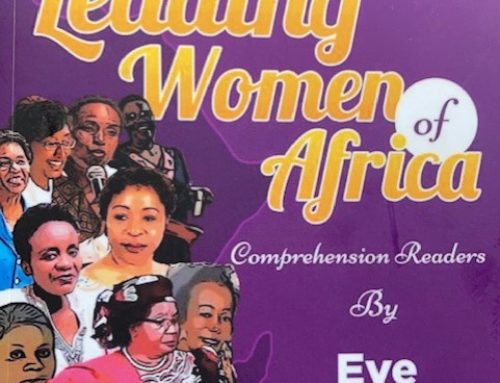To be a mom used to be something I dreamed of. From the time I was in elementary school I told people that I planned to have six kids (mostly girls with one or two boys thrown in). I regularly made and updated lists of my favorite baby names.
I grew up in a home where motherhood was valued and praised and since I have two siblings who are significantly younger than me I started practicing my mothering skills at a young age.
To be clear, there was never any pressure or expectation placed on me by my family that my calling in life was to be a wife and mother. I simply had a natural bent towards domesticity and nurture. I like cooking and baking and I love small children. I think I “get” them better than I get adults. Maybe this is because there are parts of childhood I’ve never outgrown – for example, the urge to stomp my feet when I am frustrated or to sing tuneless songs narrating what I’m doing or to be scared of things like balloons that might pop at any moment – so I understand where they’re coming from a lot of the time.
I started babysitting when I was twelve didn’t stop until I was 25. I taught 4-year old Sunday school class at my church all through college and after college I transitioned into full-time nannying, which is the closest you can get to parenting without actually having your own kids. (Of course, this varies from situation to situation, but in some of my jobs I did the grocery shopping, prepared meals, did homework and school projects, washed clothes, bought clothes, arranged play dates, bought birthday presents for parties, and attended school functions so I honestly think it’s fair to say that this was part-time parenting).
I met my husband at 18 and was married at 22. Our plan was always to wait a few years before we started our family, but I still wanted a big brood of kids and felt pressure not to wait too long. As I was nearing 25 and nothing was happening for me career-wise I started to think, “Maybe we should start having kids.” I believed that having kids would be meaningful and frankly, I believed I’d be good at it. It was something I’d always wanted to do.
And then, about two years ago, something in me changed. I can’t explain exactly how or why, but I woke up one day and I no longer felt the desire to have children. People joke that nannying is its own form of birth control. I don’t think it was that nannying made me stop wanting kids. But I do think nannying made me want to be the right kind of parent.
To be a mom, to really be a good mom, you must be willing to die to yourself and to invest the best of you into your children. I have a mom like that, so I know what it looks like. I have worked with different kinds of families and there is a profound difference between the parents whose priority is their children and who are willing to sacrifice their comfort, their careers, and their dreams to invest in their kids and the parents whose priority is themselves or their careers or the image they want to project. I don’t doubt that these second kinds of parents love their children. But based on my experience with their children, I don’t think they are being the kind of parents their kids need them to be.
I started to wonder why I had wanted a family in the first place. Why do most people have children? I don’t mean that in a flippant or cynical way. It’s something I asked very seriously. One of my deeply held beliefs is that WHY we do things matters tremendously. So I started to ask. Do I want children because I’m hoping they will give me a sense of purpose? Because it’s the next thing to cross off the list? Because nothing else in life is working out and this feels like the next logical step? Because I’m afraid of missing out? Because I believe it will express a unique kind of love with my husband? Because I’m curious about what a mini-me-and-Jonathan would be like?
For many people, the desire to have kids is probably some combination of those things. And that’s not necessarily wrong. I’ve just come to believe that it’s not ENOUGH. For me, there has to be a deeper sense of calling and with that a commitment to sacrificing whatever is required to parent well.
Understanding what parenting really means and what it requires has convinced me that it isn’t something that should be undertaken lightly. I believe that God took the desire for children away from me for a season because it isn’t the right time. Not long after I’d had this total change of heart, the opportunity for my husband and I to move overseas came up. Our move abroad has been one of the best decisions we’ve ever made, and we wouldn’t have made it if we’d had a child or even been trying to have one.
I don’t know if this feeling will last forever or if God will bring back that desire again at the right time. I do believe that God is ultimately in control of my family and that whether or not we have children depends on him much more than on me. But as much as it depends on me, I want to make sure I pursue motherhood for the right reasons. And if I should get pregnant unintentionally, then I will embrace that as a clear sign of God’s timing and will trust that he will equip me for what he’s calling me to.
I used to long for motherhood, but now to be (or not to be) a mom is something I strive to hold with open hands. I want to keep it in proper perspective, neither looking at it as a means of personal fulfilment nor refusing it out of fear or selfishness. To be a mom is a high calling, but it isn’t everyone’s calling. I want to be sure I’m listening to mine.
Lily Dunn is an ice cream connoisseur, a Disney fanatic, and a fellow raiSIN hater trying to live an authentic, intentional life. She lives and teaches with her husband in Daegu, South Korea and blogs at lilyellyn.wordpress.com. Follow her on Twitter @lilyellyn
[For a whole range of other stories arising from the phrase ‘To Be A Mom’, click here]







[…] Not sure I want to be a mom right now – Lily Dunn […]
[…] I also wrote two guest-posts for friends’ blogs. The first was for my friend Brett about being (or not being) a mom. The second guest post was for my friend Karissa’s Where I Found God series about finding God […]
Nice. These are good thoughts that I have been wading through myself. The best that I could come up with is that God tasked us with making the world a better place. If having a family means growing a small community of people that can be His hands and feet together, we would be creating a better world for ourselves but primarily, and we hope, selflessly, for our children and the rest of the people that they will be in contact with throughout their lives. Any thoughts on that?
Just saw this comment and I know it’s super old so I don’t know if you’ll see this, but I absolutely thing we’re supposed to make the world a better place/grow community, etc. I just don’t know that that has to be through having children. There are dozens, maybe even hundreds of people in our lives already who desperately need that kind of community. There are children in our lives (maybe in our churches or elsewhere in our communities) who need our love, who need us to show them what Jesus looks like. I guess I just feel like having kids isn’t a bad way to make the world a better place, but I certainly don’t think it’s the only way or that it’s the right way for everyone.
[…] in October I wrote this guest post for my friend Brett over at his site, Irresistibly Fish. I had every intention of posting it over here as well, but somehow it slipped through the cracks. […]